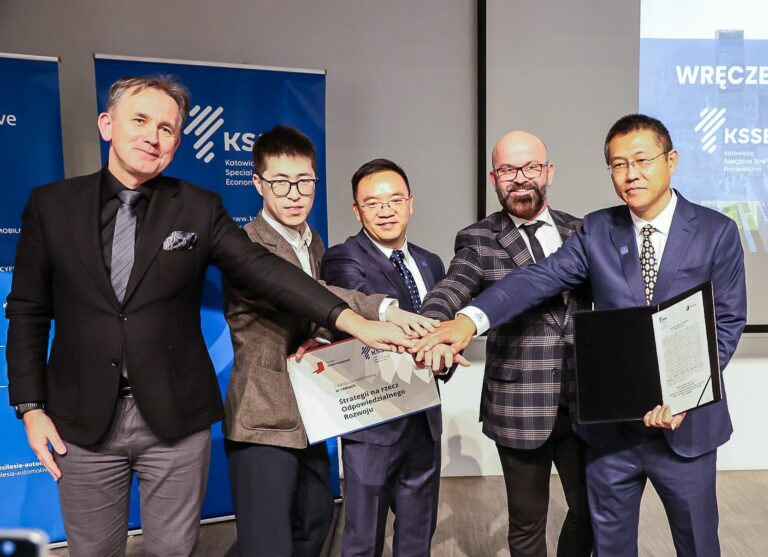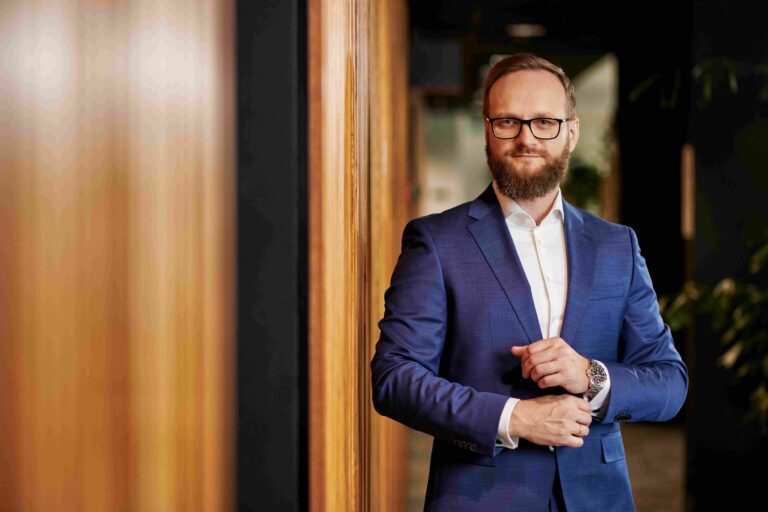Woshwosh makes a splash
Data from the European Commission show that since 1996 the amount of clothing purchased in the EU per person has increased by 40%. Annually, Europeans buy 26 kg of clothing and throw away around 11 kg of textiles.
Meanwhile, according to a KPMG report from 2019, nearly four out of 10 Polish consumers said they buy a new item of clothing at least once a month, most of them spending no more than PLN 150 (€33).
Kantar found that over 90% of Polish society agrees that humanity is facing climate and environment crises, but just one in 10 Poles take any real action to reduce their own environmental and climate footprint. Polish firm WoshWosh, the world’s first shoe cleaning, restoration, repair and customization company, aims to change that, step-by-step.
“Our cleaning and repair services are now available in 10,000 Żabka stores across Poland, making them easily accessible nationwide. The process of shipping for cleaning or repair is incredibly simple and convenient for everyone, with no additional cost. This ensures that our services are widely available, providing a seamless and affordable solution for customers,” says Martyna Zastawna, the founder and owner of woshwosh.
“We decided to help people in the homeless crisis seven years ago by organizing a shoe collection for homeless people in Poland. I started because I wanted to clean my own shoes and couldn’t find anywhere that would do it for me,” she says.
Employing 30 people in Warsaw, Martyna started as a 24-year fresh out of university in a small apartment in the eastern Warsaw district of Goclaw. “It was me and my dog at the start,” she says. “But very quickly we had 500 pairs of shoes to handle and I had to rent a place to do it.”
LPP, the Polish clothing manufacturer behind brands such as Reserved, Sinsay, Mohito, Cropp, and House, launched a special initiative, the Wear Your Story campaign, which was the second edition of the “Dbaj o ubranie” project. LPP offered consumers vouchers for small tailoring services. In collaboration with WoshWosh, LPP aimed to raise awareness about circular fashion in Poland, highlight the benefits of extending the lifespan of clothing, and make repair services more accessible to the public.
The extended warranty project launched in collaboration with Kazar is part of their new Kazar Care program, which focuses on providing an extended care plan for footwear. The initiative allows customers to enjoy prolonged product protection beyond the standard guarantee, ensuring high-quality service even after the purchase. This project is currently available at Kazar, with plans underway to expand the service to other retail chains. The program includes professional care and cleaning services, helping to maintain the longevity and quality of Kazar products.
“We are committed to collecting shoes for charities and helping homeless people as part of our broader sustainability efforts. This initiative focuses on giving new life to footwear that might otherwise go to waste by redirecting it to those in need. By partnering with charitable organizations, we ensure that gently used or unwanted shoes are distributed to homeless individuals and communities facing hardship. This not only supports those in need but also aligns with our mission to reduce waste and promote circular economy principles,” Martyna says.
According to the European Commission’s Strategy for a Sustainable Textile Sector, textile products on the EU market will need to be durable much longer than at present and recyclable, made mainly of recycled fiber, free of hazardous substances and produced with respect for social rights and the environment by 2030.
“That means that textile companies will have to redefine their value chains, product design, production and communication,” says Agnieszka Oleksyn-Wajda, director of the Institute of Sustainable Development at Lazarski University in Warsaw.
“The EU ambition is that circular textile will also be affordable for the consumer. However, taking into account the instruments to be introduced by companies (such as digital product passport), and also innovation (eco-design, new technologies allowing textile fibre-to-fibre recycling), developing the skills needed for the green transition I presume the total cost of the textile product will be higher,” says Oleksyn-Wajda.
The fashion industry itself has taken voluntary initiatives at an international level to reduce emissions in its supply chain.
A particular example is the Fashion Industry Charter for Climate Action under the aegis of the UN or the Fashion Pact adopted during the G7 summit. The signatories undertook to reduce greenhouse gas emissions to the extent and pace specified in the Paris Agreement. In order to achieve a significant reduction in greenhouse gas emissions in the fashion sector, fundamental changes are needed along the entire value chain. “A lot will depend on changes in the way clothes are produced, but also on changes in consumer behavior,” says Oleksyn-Wajda.







